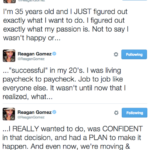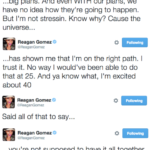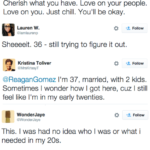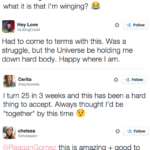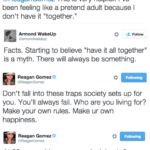A school librarian introduces me before I give an assembly. “Girls, you’re in for a real treat. You will love Shannon Hale’s books. Boys, I expect you to behave anyway.”
I’m being interviewed for a newspaper article/blog post/pod cast, etc. They ask, “I’m sure you’ve heard about the crisis in boys’ reading. Boys just aren’t reading as much as girls are. So why don’t you write books for boys?”
Or, “Why do you write strong female characters?” (and never asked “Why do you write strong male characters?”)
At book signings, a mother or grandmother says, “I would buy your books for my kids but I only have boys.”
Or, “My son reads your books too—and he actually likes them!”
Or, a dad says, “No, James, let’s get something else for you. Those are girl books.”
A book festival committee member tells me, “I pitched your name for the keynote but the rest of the committee said ‘what about the boys?’ so we chose a male author instead.”
A mom has me sign some of my books for each of her daughters. Her 10-year-old son lurks in the back. She has extra books that are unsigned so I ask the boy, “Would you like me to sign one to you?” The mom says, “Yeah, Isaac, do you want her to put your name in a girl book?” and the sisters all giggle. Unsurprisingly, Isaac says no.
These sorts of scenarios haven’t happened just once. They have been my norm for the past twelve years. I’ve heard these and many more like them countless times in every state I’ve visited.
In our culture, there are widespread assumptions:
1. Boys aren’t going to like a book that stars a girl. (And so definitely won’t like a book that stars a girl + is written by a woman + is about a PRINCESS, the most girlie of girls).
2. Men’s stories are universal; women’s stories are only for girls.
But the truth is that none of that is truth. In my position, not only have I witnessed hundreds examples of adults teaching boys to be ashamed of and avoid girls’ stories, I’ve also witnessed that boys can and do love stories about girls just as much as about boys, if we let them. For example, I’ve heard this same thing over and over again from teachers who taught Princess Academy: “When I told the class we were going to read PRINCESS ACADEMY the girls went ‘Yay!’ and the boys went ‘Boo!’ But after we’d read it the boys liked it as much or even more than the girls.”
Most four-year-old boys will read THE PRINCESS IN BLACK without a worry in the world. Most fourth grade boys won’t touch PRINCESS ACADEMY—at least if others are watching. There are exceptions, of course. I’ve noticed that boys who are homeschooled are generally immune. My public-school-attending 11-year-old son’s favorite author is Lisa McMann. He’s currently enjoying Kekla Magoon’s female-led SHADOWS OF SHERWOOD as much as he enjoyed the last book he read: Louis Sachar’s boy-heavy HOLES. But generally in the early elementary years, boys learn to be ashamed to show interest in anything to do with girls. We’ve made them ashamed.
I want to be clear; if there’s a boy who only ever wants to read about other boys, I think that’s fine. But I’ve learned that most kids are less interested in the gender of the main character and more interested in the kind of book—action, humor, fantasy, mystery, etc. In adults’ well-meant and honest desire to help boys find books they’ll love, we often only offer them books about boys. We don’t give them a chance.
Whenever I speak up about this, I am accused of trolling for boy readers when they aren’t my “due.” So let me also be clear: I have a wonderful career. I have amazing readers. I am speaking up not because I’m disgruntled or demand that more boys read my books but because my particular career has put me in a position to observe the gender bias that so many of us have inherited from the previous generations and often unknowingly lug around. I’ve been witnessing and cataloging widespread gender bias and sexism for over a decade. How could I face my kids if I didn’t speak up?
And here’s what I’ve witnessed: “great books for boys” lists, books chosen for read alouds, and assigned reading in high schools and colleges, etc. are overwhelmingly about boys and written by men. Peers (and often adults) mock and shame boys who do read books about girls. Even informed adults tend to qualify recommendations that boys hear very clearly. “Even though this stars a girl, boys will like it too!”
This leads to generations of boys denied the opportunity of learning a profound empathy for girls that can come from reading novels. Leads to a culture where boys feel perfectly fine mocking and booing things many girls like and adults don’t even correct them because “boys will be boys.” Leads to boys and girls believing “girlie” is the gravest insult, that girls are less significant, not worth your time. Leads to girls believing they must work/learn/live “like a man” in order to be successful. Leads to boys growing into men who believe women are there to support their story, expect them to satisfy men’s desires and have none of their own.
The more I talk about this topic, the more I’m amazed at how many people haven’t really thought about it or considered the widespread effect gendered reading causes. I was overwhelmed by the response to a blog post I wrote earlier this year. To carry on this conversation, I’m working with Bloomsbury Children’s Books to create #StoriesForAll. Each day this week we’ll feature new essays on this topic from authors, parents, teachers, librarians, booksellers, and readers. On twitter, instagram, and tumblr, join us with the #StoriesForAll hashtag to share experiences, photos, book recommendations. Discuss: How deep is the assumption that there are boy books and girl books? Does it matter? What have you witnessed with regards to gendered reading? What damage does gendered reading cause to both girls and boys? What can each of us do to undo the damage and start making a change?
I yearn for that change. For our girls and for our boys.
——————
Shannon Hale is the New York Times bestselling author of over 20 books, including the Ever After High trilogy and the Newbery Honor winner Princess Academy. She co-wrote The Princess in Black series and Rapunzel’s Revenge with her husband, author Dean Hale. They have four children.
THIS IS SO IMPORTANT I am reblogging it here instead of icklegab. Please read!
